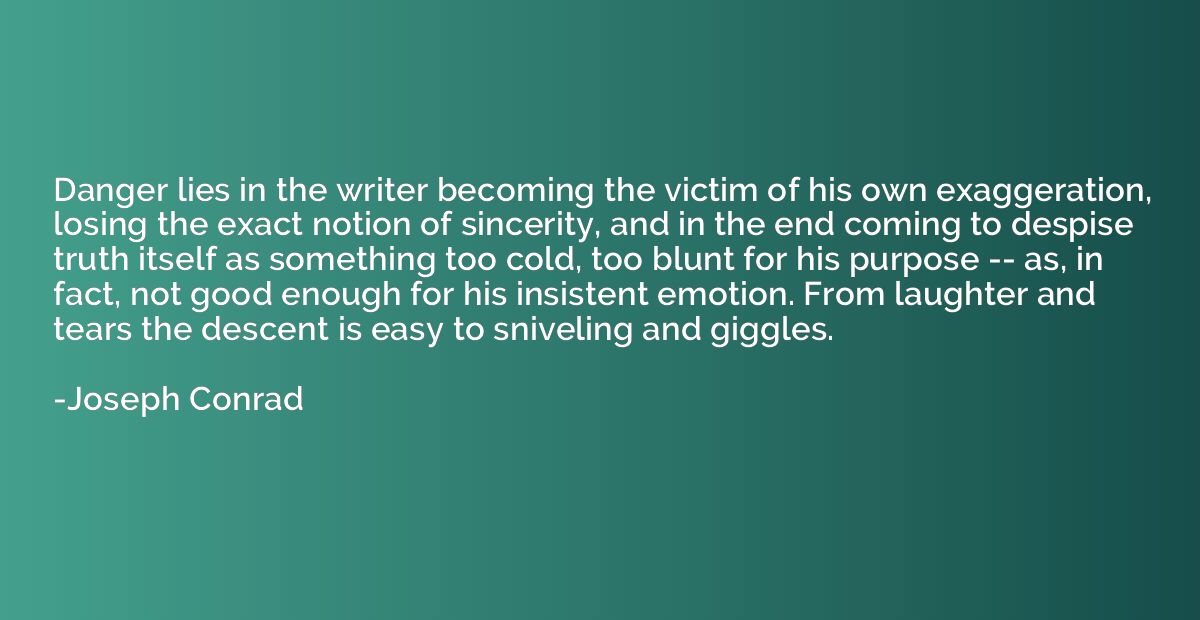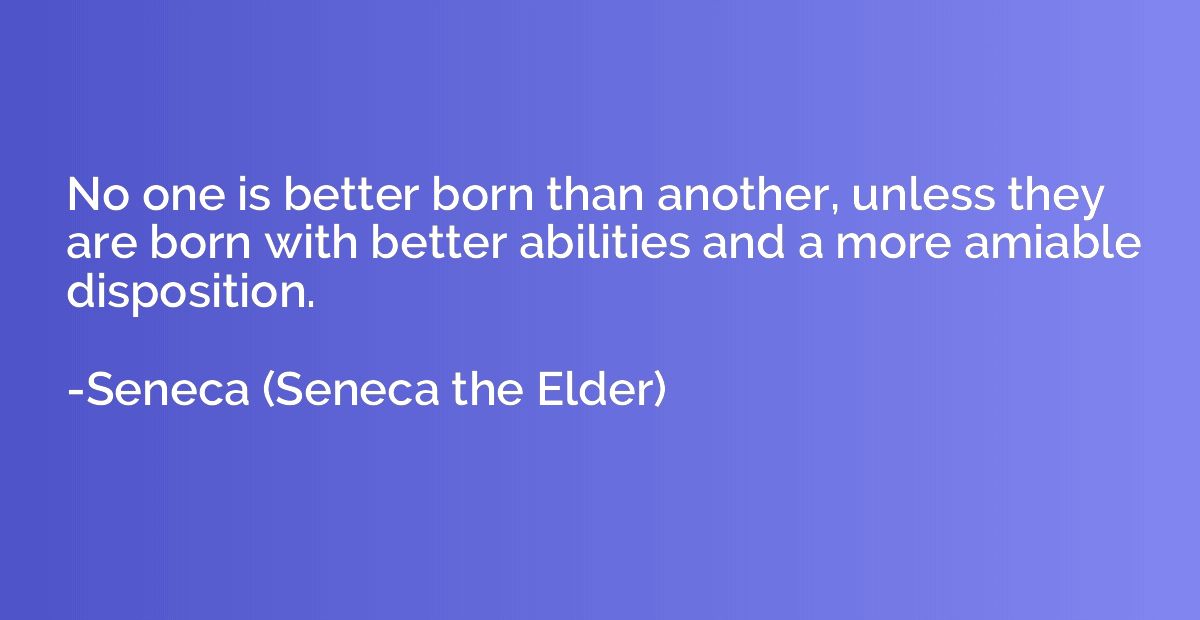Quote by Joseph Conrad
Danger lies in the writer becoming the victim of his own exaggeration, losing the exact notion of sincerity, and in the end coming to despise truth itself as something too cold, too blunt for his purpose -- as, in fact, not good enough for his insistent emotion. From laughter and tears the descent is easy to sniveling and giggles.

Summary
This quote highlights the potential danger for writers who rely too heavily on exaggerated storytelling. It argues that as writers exaggerate, they can lose the genuine sincerity in their work and may eventually begin to despise the truth itself for not being emotional enough. The quote suggests that the path from genuinely evoking laughter and tears can swiftly descend into shallow emotional displays that are synonymous with sniveling and giggles, further emphasizing the cautionary nature of excessive exaggeration and the importance of maintaining truth and sincerity in writing.














